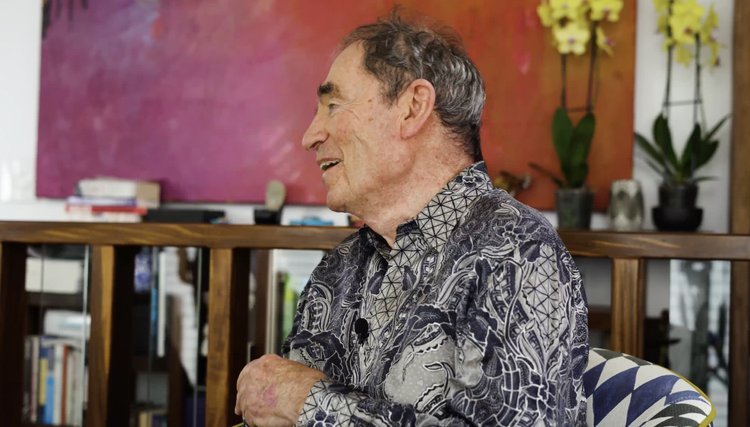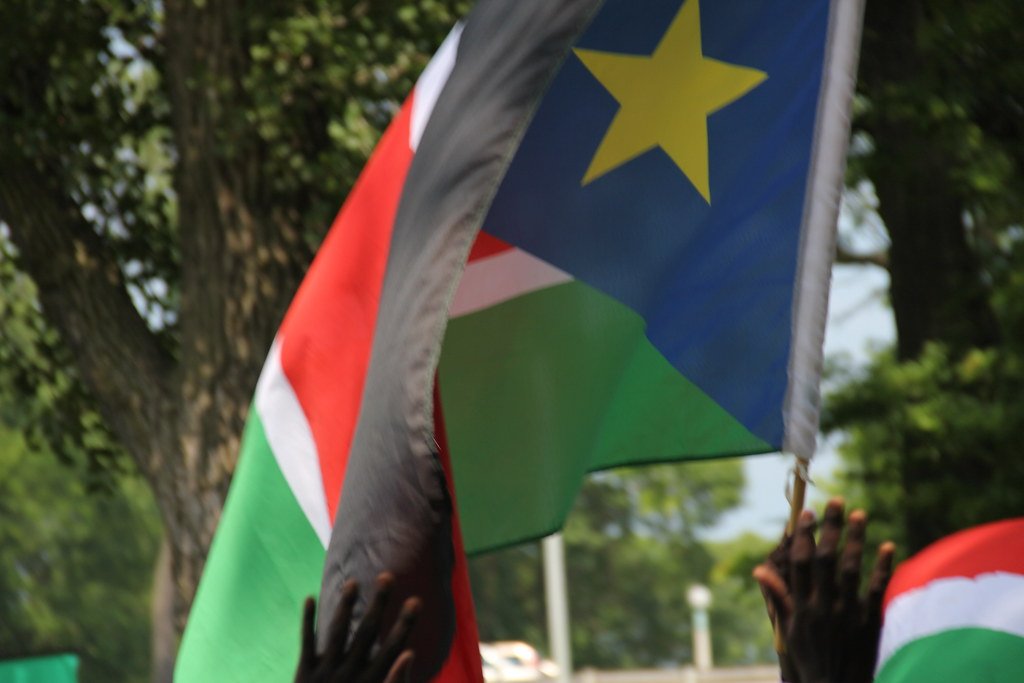
Our Blog
Categories
- Africa
- African Union
- Central Africa
- Citizenship laws
- Competion Law
- Constitutional Court
- Constitutional Law
- Constitutional law
- Disability Rights
- Disability rights
- East Africa
- Environmental Law
- Gender Equality
- Governance
- Human Rights
- Immigration Laws
- International Law
- Kenya
- Labour Law
- Mining Law
- Nigeria
- North Africa
- Political Rights
- Public International Law
- Public Law
- Right to Vote
- SADC Region
- South Africa
- Southern Africa
- Uganda
- West Africa
- Year end anthology
- Zambia
Introduction to the Maputo Protocol and its Significance
The Maputo Protocol, adopted two decades ago in Maputo, Mozambique, marked a historic moment for women's rights in Africa. In this blog post, Esther Waweru discusses the gaps in the African Charter which necessitated the Protocol’s adoption in so far as gender equality and women’s rights are concerned.
Introducing ‘The Maputo Protocol at 20: Progress, Challenges, and the Way Forward’ Series
In celebration of the 20th anniversary of the Protocol to the African Charter on Human and Peoples’ Rights on the Rights of Women in Africa (the Maputo Protocol), ALM will be running a series reflecting on its progress and challenges. We will bring to you blog posts authored by women’s rights experts from the region providing commentary on various aspects of the Protocol.
From Symbolic Constitutionalism to Real Constitutionalism: Taming Imperial Presidency in Kenya’s CAS Judgment
In a recent judgment, the High Court of Kenya ruled that the President had exceeded his authority by not following the required procedures when he appointed 50 Chief Administrative Secretaries (CAS). Joshua Nyawa delves into the implications of this ruling and argues for a shift from symbolic constitutionalism to real constitutionalism in Kenya.
Revisiting the Macharia v Safaricom: The Realization of the Right to Employment of PWDs in Kenya
According to the World Health Organization, an estimated 1.3 billion people experience significant disability. This represents 16% of the world’s population or 1 in 6 of us. Persons with disabilities face discrimination and barriers that restrict them from participating in society on an equal basis with others every day. They are commonly denied amongst others rights, their right to be included in the workplace. In this article, Ann Haret Chepkemoi appraises laws that relate to persons with disability in Kenya.
Book Feature: Constitutionalism and the Economy in Africa, (Charles M Fombad and Nico Steytler eds.) (OUP, 2022)
In “Constitutionalism and the Economy in Africa”, the relationship between constitutionalism and economic growth in Africa is examined with reference to how constitutional reforms in the 1990s and beyond have reflected the shift towards a market economy. Through these inquiries, the book aims to deepen our understanding of how constitutional frameworks interact with economic growth in Africa. ALM caught up with editors, Prof Charles Fombad and Prof Nico Steytler to ask them more about this book.
“It’s cool to be a 21st-century artisan”
For a number of years it has been observed that South Africa needs more people to study at vocational schools, including Technical and Vocational Education and Training (TVET) colleges. There has also been a steady increase in the number of learners qualifying for university admission, yet universities are unable to house them all. Thandeka Nokwanda Khoza argues that there is a need to close the gap in the market by destigmatising vocational training so that more learners apply to and attend TVET colleges.
A Win for LGBT Rights in Namibia
Same-sex unions are currently not performed in Namibia. However, last month, the Namibian Supreme Court held that the Namibian government should recognize same-sex marriages conducted outside Namibian jurisdiction. In this article, Mahima critically analyzes the judgment of the court in Digashu and Others v GRN and Others; Seiler-Lilles v GRN and Others, bringing to the fore human rights issues, and comparativism in judicial reasoning.
Nigeria: A Problematic Presidential Inauguration (Part II)
In the second of a two-part series focused on the contested presidential election in Nigeria, Ugochukwu Ezeh argues that the timeous judicial determination of electoral disputes is crucial to ensuring that leaders possess credible and legitimate democratic mandates.
Nigeria: A Problematic Presidential Inauguration (Part I)
In the first of a two-part series of blog posts focused on the contested presidential election in Nigeria, Ugochukwu Ezeh considers the existing electoral dispute resolution system and argues that it leaves much to be desired.
Decolonizing the Narrative around Constitutions, Personal Laws, and Women’s Rights
Many constitutions in Africa contain what are known as “clawback clauses,” which exempt personal law from their guarantees of nondiscrimination. In this week’s post, the authors posit that a decolonization approach which surfaces the history of colonial involvement in constitution-making can also be helpful in legal cases involving the clawback provisions, and in broader policy advocacy and public awareness-raising about the need to reconsider and revise personal status law regimes.
Sudan at war: A litmus test for the African Union’s aspiration for “a peaceful and secure Africa”
In this article, Dr. Linda Mushoriwa focuses on the current conflict in Sudan. She examines whether given Aspiration 4 of Agenda 2063, the African Union’s quest for peace and security is feasible. She analysis Article 4 (h) of the Constitutive Act of the African Union, which empowers the AU to intervene in Sudan’s conflict. She also notes that the AU can within their mandate deploy peacekeeping forces to silence the guns in Sudan. In that way, it can achieve its desire to promote peace, security, and stability in Africa.
Competition Commission of South Africa v Mediclinic: A Trinity of Errors
In this article Adv. Quentin du Plessis analyzes how the South African Constitutional Court handled the Competition Commission of South Africa v Mediclinic case. The matter was an application for leave to appeal against the judgment and order of the Competition Appeal Court (CAC). In that regard, the Constitutional Court had to answer whether the CAC was in law, correct in interfering as it did with the findings of and remedy given by the Competition Tribunal to prohibit a merger in the private healthcare services sector.
Constitutional Conversations with Justice Sachs - Episode 2
Following his retirement from the Constitutional Court, Justice Sachs penned an award-winning book detailing his experiences on the Bench. In Episode 2 of our interview, he explains the inspiration behind this thought-provoking read and what he hopes readers will take from it.
Questions of Inclusivity in South Sudan’s 2024 Elections: Gender and Ethnic Dilemmas
In 2024, South Sudan will hold elections for the very first time since attaining independence in 2011. Dr. Joseph Geng Akech and Cedonia Victor Legge discuss the challenges of inclusivity in the upcoming elections, amidst various crises such as economic collapse, political instability, and a catastrophic humanitarian situation. The article emphasises the importance of ensuring ethnic and gender inclusivity for legitimate outcomes of the elections.
Uganda’s Anti-Homosexuality Bill and the Demise of the Rule of Law
Recently, the Parliament of Uganda passed the Anti-Homosexuality Bill (AHB) with the objective of establishing, amongst other things, “comprehensive and enhanced legislation to protect the traditional family by strengthening the nation’s capacity to deal with emerging internal and external threats to the traditional heterosexual family.” In this article, Dr. Sylvie Namwase argues that the continued cycle of human rights violations in Uganda falls within the broader context of authoritarian control, and will soon affect other minority groups.
- Africa
- BBI judgment
- Children's rights
- Climate Change
- Constitutional Law
- Constitutional reform
- Democracy
- Election series
- Elections
- Environmental Justice
- Equality
- Human Rights
- International Law
- Judicial independence
- Kenya
- LGBTQ+ Rights
- Migrants
- Migration
- Namibia
- Nigeria
- Political Rights
- Public participation
- Refugee and migration series
- Refugees
- South Africa
- South African Constitution
- Women in Africa
- Women's Month
- Women's rights
- World Congress
Submissions
We welcome unsolicited submissions covering current legal developments in constitutional law, fundamental rights law, public law, international law and related fields.
















